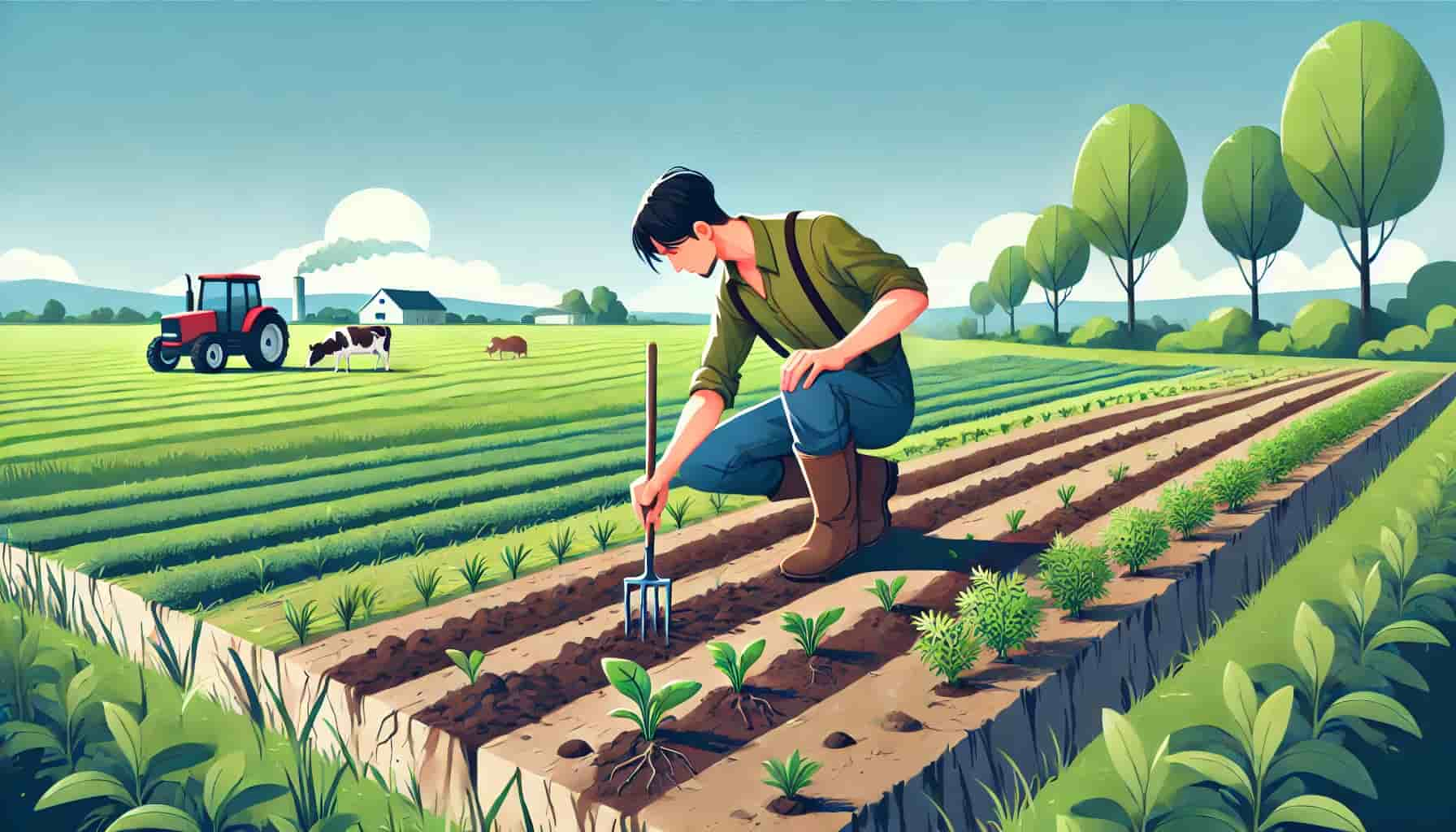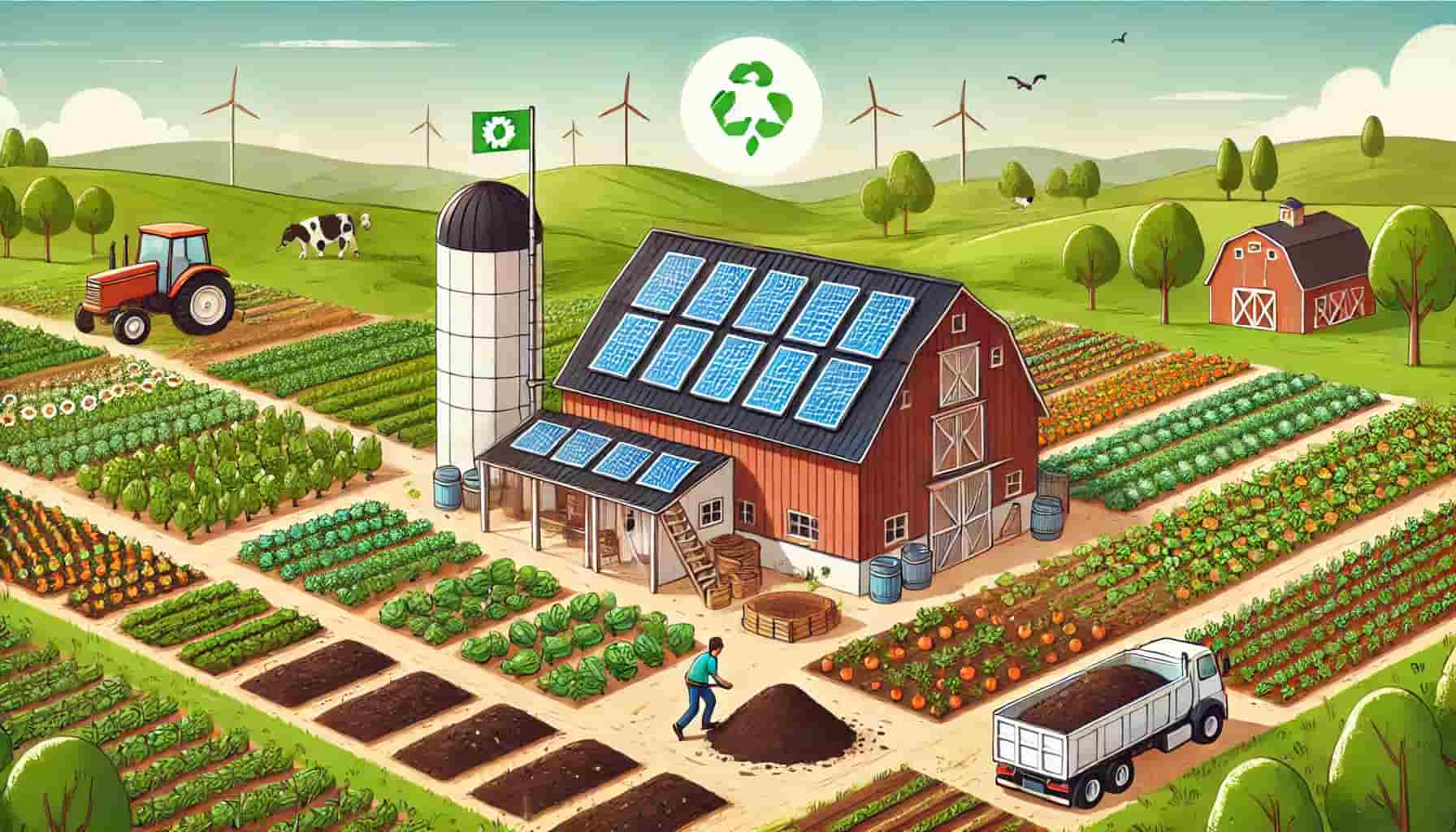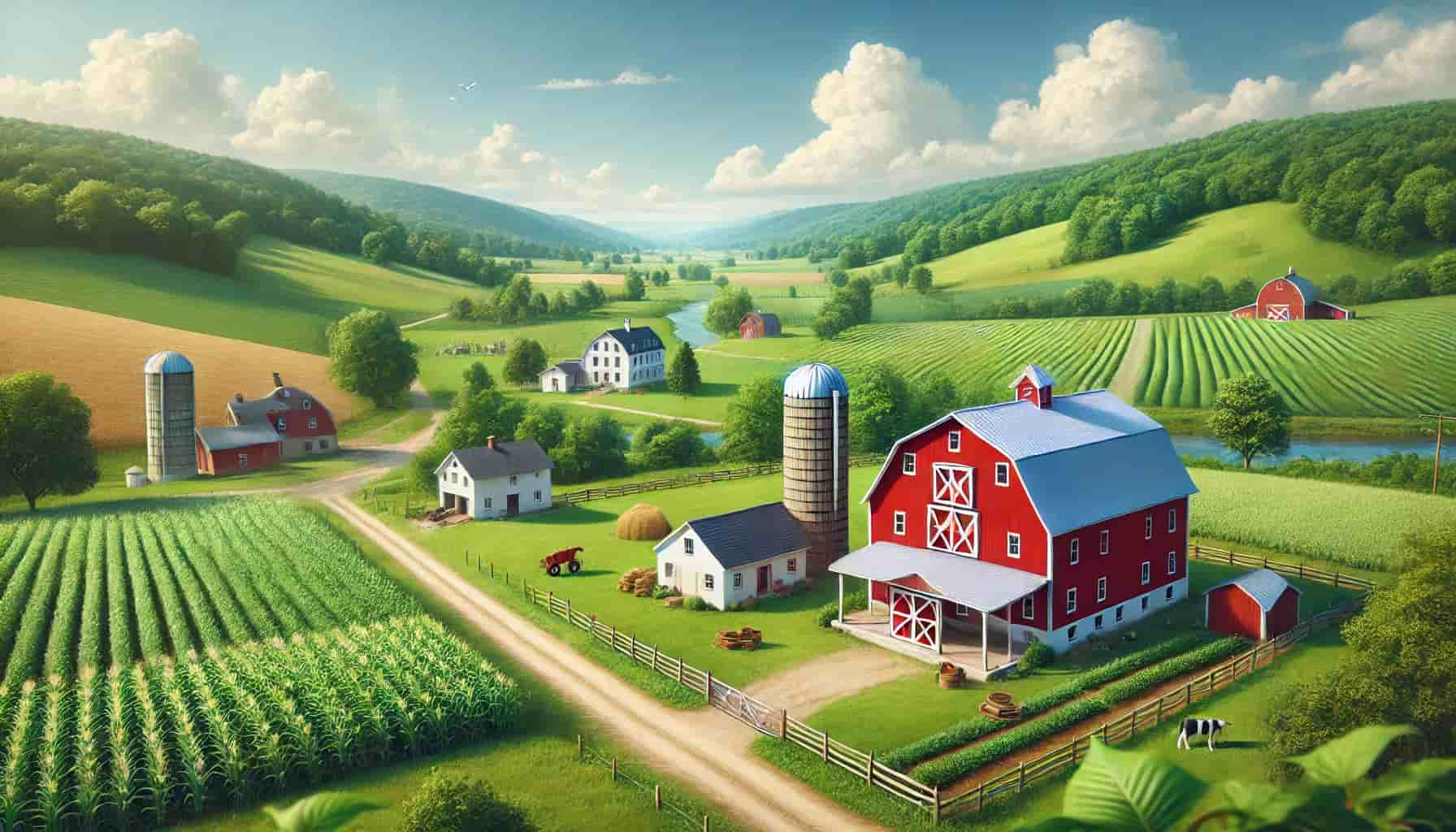Introduction
The allure of starting a small farm is captivating, painting visions of sunlit fields, the scent of fresh earth, and the satisfaction of cultivating life from seed to harvest. Yet beneath this idyllic image lies a world teeming with opportunities and challenges that can either make or break your agricultural dream. As you set out on this journey, preparation is key.
This guide will illuminate the path to creating a thriving, sustainable, and profitable farming business, armed with innovative strategies and cutting-edge technologies. Whether it’s selecting the perfect plot of land or mastering advanced agricultural tools, the insights contained within will equip you to not only survive but flourish in the competitive world of small farming.
Choosing the Right Land and Crops for Your Farming Adventure

Embarking on the journey of starting a small farm begins with a thorough evaluation of your land and the selection of suitable crops or livestock. It’s essential to understand your land’s potential, whether it supports irrigated or non-irrigated farming, as this will guide your decisions. For instance, in California, a substantial portion of agricultural land requires irrigation, consuming a significant amount of water resources. Consider the type of crops that thrive in your climate and soil type, such as the diverse mix of nuts, fruits, and vegetables that flourish in California. If livestock is your preferred choice, ensure your land’s climate can support their needs, a practice well-documented in regions like New South Wales.
Unlocking Profits with Sustainable Farm Practices
Transforming your small farm into a profitable venture requires a sustainable business model. By focusing on creating products that are reusable, repairable, or recyclable, you can reduce waste and operational costs. This approach is not only attractive to the majority of consumers willing to pay more for eco-friendly products but also increases your chances of financial success. Collaborate with stakeholders and set clear environmental goals to enhance your farm’s reputation and attract employees who value sustainability. By embracing circular principles, you’ll strengthen your farm’s resilience and competitive edge.
Boosting Efficiency through Farming Technology
To boost your farm’s efficiency and profitability, it’s vital to embrace advanced agricultural technologies. Tools like self-driving tractors and robotic harvesters can automate essential tasks, reducing labor costs and improving productivity. Implementing data-driven strategies such as precision agriculture allows you to apply resources like water and fertilizers precisely where needed, minimizing waste and maximizing yields. Additionally, digital platforms can aid in proactive pest management and accurate yield forecasting, empowering you to make informed decisions that enhance your farm’s sustainability and resilience.
Tackling Regulations for a Smooth Farm Start

Starting a small farm involves navigating various regulatory requirements and securing necessary permits to ensure legal compliance. While federal permits might not always be required unless your farm engages in specific activities, obtaining local or state permits, such as a business license, is crucial. Each state has its own set of regulations, and tools like the CalGold website can help you determine the specific permits needed for your farm. Staying informed about changes in privacy laws and other relevant legislation is also important, as these can impact how you maintain records and handle customer information.
Crafting Your Farm’s Brand to Capture Hearts
Developing a strong brand strategy is essential for marketing your small farm effectively. Begin by defining what your brand stands for beyond financial goals, creating a strong emotional connection with your audience. Identify your target audience using segmentation models to tailor marketing initiatives that resonate deeply with potential customers. Consistent messaging and creative storytelling will highlight how your brand stands out, ensuring a memorable presence in the market.
Shielding Your Farm from Risks and Uncertainties
Ensuring your farm’s long-term success involves identifying and mitigating potential risks. Strategies such as crop diversification can reduce the impact of adverse weather and market fluctuations. Utilizing insurance provides financial protection against unexpected losses, enabling quick recovery from disruptive events. Adopting sustainable farming practices not only mitigates environmental hazards but also enhances your farm’s resilience. Staying vigilant by monitoring market trends and weather patterns allows you to adapt proactively, safeguarding your farm from emerging threats.
Elevate Your Farm’s Image with Personalized Business Cards
Designing custom business cards is a strategic way to enhance your farm’s visibility and connect with potential customers. By using high-quality materials and crafting a design that aligns with your farm’s identity, you convey professionalism and dedication. Focus on vibrant colors and clear typography to ensure essential details like your farm name and contact information are easily readable.
To streamline the process, consider using an app that offers professional templates, generative AI capabilities, and user-friendly editing tools, allowing you to print business cards online efficiently. This approach saves time and ensures high-quality results, establishing your farm’s brand in the marketplace.
Starting a small farm is an exciting venture filled with opportunities for growth and success. By carefully selecting your land and crops, embracing sustainable practices, leveraging advanced technologies, navigating regulatory requirements, and building a strong brand strategy, you’ll be well on your way to creating a profitable and resilient agricultural business.
Yet, beyond these practical steps lies the essence of farming—a profound connection to the land and the community it nourishes. As you sow the seeds of your dreams, remember that the heart of farming is not just in the soil or the harvest but in the relationships you cultivate along the way. Let your passion guide you, and your farm will not only thrive but become a beacon of inspiration and sustainability in the agricultural world.



